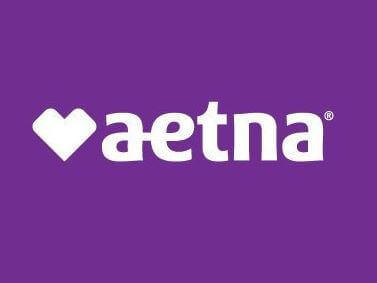Choosing the right health insurance plan for an individual can be a daunting task, with several factors to consider, including coverage, cost, and network.
Kaiser Permanente, Aetna, and UnitedHealthcare are among the best affordable health insurance plans for individuals, offering varying coverage options and availability across all 50 states.
Additionally, the Blue Cross Blue Shield Association provides healthcare coverage across all 50 states, offering both security and compassion.

Kaiser Permanente
Kaiser Permanente is a large integrated healthcare system that offers individual health insurance plans in certain regions of the United States.

Types of plans:
- HMO plans: These are the most common type of plan offered by Kaiser Permanente. They require you to choose a primary care physician (PCP) from within the Kaiser Permanente network, who will coordinate your care and provide referrals to specialists if needed.
- PPO plans: These plans offer more flexibility than HMO plans, allowing you to see out-of-network providers for a higher cost.
Benefits:
- Coverage for a wide range of preventive and medical services, including doctor visits, hospitalization, and mental health care.
- Access to a network of Kaiser Permanente doctors and hospitals.
- Coordinated care, means that your doctors and other healthcare providers can easily communicate with each other about your care.
Eligibility:
- You must live in a region where Kaiser Permanente offers individual health insurance plans.
- You cannot be enrolled in Medicare or Medicaid.
Costs:
- Premiums for Kaiser Permanente individual health insurance plans vary depending on the plan you choose, your age, location, and other factors.
- You may also have to pay deductibles, copays, and coinsurance.
Here are some additional things to consider when deciding if Kaiser Permanente individual health insurance is right for you:
- Network: Kaiser Permanente has a closed network of providers, which means that you can only see providers within the network except in certain emergencies. This may be a limitation if you have a preferred doctor or specialist who is not in the network.
- Costs: Kaiser Permanente individual health insurance plans can be more expensive than some other plans, especially if you use out-of-network providers.
- Customer satisfaction: Kaiser Permanente consistently receives high marks for customer satisfaction.
Aetna
Aetna offers a variety of individual health insurance plans to meet different needs and budgets.

Types of plans:
- Aetna Open Access plans: These are HMO plans that require you to choose a primary care physician (PCP) within the Aetna network who will coordinate your care and provide referrals to specialists if needed.
- Aetna Choice POS plans: These plans offer more flexibility than HMO plans, allowing you to see out-of-network providers for a higher cost. You still have a PCP, but you don’t need a referral to see a specialist.
- Aetna Signature Value plans: These are high-deductible health plans (HDHPs) that have lower monthly premiums but higher deductibles that you must pay before the plan starts covering costs. These plans are often paired with a health savings account (HSA) which allows you to save money tax-free to use towards your deductible and other qualified medical expenses.
Benefits:
- Coverage for a wide range of preventive and medical services, including doctor visits, hospitalization, and mental health care.
- Access to a large network of doctors and hospitals.
- Wellness programs: Aetna offers a variety of wellness programs that can help you stay healthy and save money on your premiums.
- Digital tools: Aetna provides members with a variety of digital tools to manage their health, such as a mobile app, online portal, and 24/7 nurse line.
Eligibility:
- You must be a U.S. citizen or legal resident.
- You cannot be enrolled in Medicare or Medicaid.
Costs:
- Premiums for Aetna individual health insurance plans vary depending on the plan you choose, your age, location, and other factors.
- You may also have to pay deductibles, copays, and coinsurance.
Here are some additional things to consider when deciding if Aetna individual health insurance is right for you:
- Network: Aetna has a large network of providers, but it is important to check to make sure that your preferred doctors and hospitals are in-network.
- Costs: Aetna individual health insurance plans can vary in cost, so it is important to compare plans and shop around to find one that fits your budget.
- Customer satisfaction: Aetna has received mixed reviews for customer satisfaction. It is important to read reviews and do your research before choosing a plan.
UnitedHealthcare
UnitedHealthcare offers various individual health insurance plans to cater to diverse needs and budgets.

Types of plans:
- ACA Marketplace plans: These plans comply with the Affordable Care Act (ACA) and offer various coverage levels (Bronze, Silver, Gold, Platinum) with varying premiums and deductibles. You can qualify for financial assistance based on your income to make these plans more affordable.
- Short-term health plans: These plans offer temporary coverage for less than a year, ideal for bridging gaps between employer-sponsored plans or waiting for ACA open enrollment. However, they often have limited benefits and exclusions for pre-existing conditions.
- Self-employed health plans: Designed for individuals without employer-sponsored insurance, tailored to fit their needs and income.
Benefits:
- Extensive coverage: Plans cover a wide range of essential health benefits, including preventive care, doctor visits, hospitalization, and mental health services.
- Network options: Access to UnitedHealthcare’s network of doctors and hospitals, varying by plan and location. Some plans allow out-of-network coverage with higher costs.
- Telehealth: Many plans offer virtual consultations with doctors, providing convenient access to care.
- Wellness programs: Get support and resources for staying healthy and managing chronic conditions.
Eligibility:
- You must reside in a state where UnitedHealthcare offers individual plans.
- You cannot be enrolled in Medicare or Medicaid.
Costs:
- Premiums depend on the plan type, coverage level, age, location, and health status.
- Expect additional costs like deductibles, copays, and coinsurance.
Additional considerations:
- Network adequacy: Ensure your preferred doctors and hospitals are in-network to avoid higher costs.
- Financial assistance: Explore available subsidies and tax credits to reduce costs if eligible.
- Pre-existing conditions: Understand coverage limitations for pre-existing conditions, especially with short-term plans.
Before choosing a UnitedHealthcare plan:
- Compare plans: Analyze premiums, deductibles, coverage, and network details to find the best fit for your needs and budget.
- Consider future needs: Think about potential upcoming medical expenses and choose a plan that offers adequate coverage.
- Ask questions: Consult UnitedHealthcare representatives or a broker for assistance and clarification.
Blue Cross Blue Shield
Blue Cross Blue Shield (BCBS) is a federation of 35 independent BCBS companies across the US, each offering various individual health insurance plans.
This makes it crucial to specify your location to get accurate information regarding available plans and costs.

Here’s a general overview of what BCBS offers for individual health insurance:
Types of Plans:
- HMO plans: Require choosing a primary care physician (PCP) within the network for referrals to specialists. Often have lower premiums but limited network choices.
- PPO plans: Offer more flexibility by allowing you to see out-of-network providers for a higher cost. Typically have higher premiums than HMO plans.
- High-deductible health Plans (HDHPs): Have lower monthly premiums but higher deductibles you must pay before the plan covers costs. Often paired with Health Savings Accounts (HSAs) for tax-advantaged medical savings.
Benefits:
- Coverage for essential health services like preventive care, doctor visits, hospitalization, and mental health care (specific benefits vary by plan).
- Access to a large network of providers, varying by location and plan type.
- May offer additional benefits like wellness programs, telehealth options, and discounts on certain services.
Eligibility:
- Be a US citizen or legal resident.
- Not be enrolled in Medicare or Medicaid.
- Meet age and residency requirements specific to your state and chosen plan.
Costs:
- Premiums vary significantly depending on your location, age, health status, plan type, and chosen coverage level.
- You may also have to pay deductibles, copays, and coinsurance.
Additional Considerations:
- Network adequacy: Ensure your preferred doctors and hospitals are in-network to avoid higher out-of-network costs.
- Financial assistance: Explore available subsidies and tax credits to reduce costs if eligible.
- Pre-existing conditions: Understand how your plan handles pre-existing conditions, especially with HDHPs.










